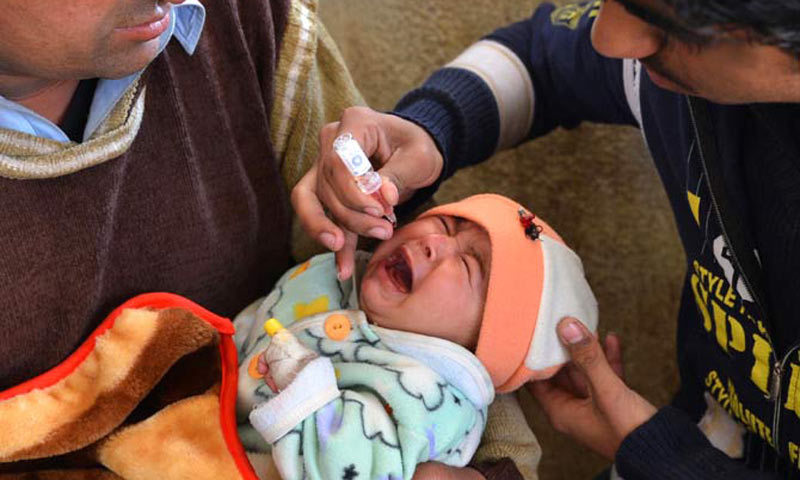Ministry of Health and Family Welfare, For A Better Health System In India
The Ministry of Health and Family Welfare i.e. Swasthya Aur Parivar Kalyan Mantralaya is a department of health and family welfare under Government of India. It comprises of two departments, Department of Health & Family Welfare and Department of Health Research, both are headed by a Secretary to the Government of India.
Universal Immunization Program in India has set targets to achieve full immunization of all target-age children and their mothers. The program aims to deliver vaccines to each state and district in India. It was in 2012 when India declared the year as the Year of Intensification of Routine Immunization (RI). So to continue the efforts of Universal Immunization Program in India, with the guidance of MoU (Memorandum of Understanding), MoHFW (Ministry of Health and Family Welfare) and PHFI (Public Health Foundation of India), a unit called as Immunization Technical Support Unit (ITSU) was established in collaboration with other partners.
The efforts by ITSU are being made with national programs to deliver an impactful change in the health system. The core aim of ITSU is to improve the access, reach, quality and coverage of the routine immunization program in India. The major focus is on the key states like Bihar, Madhya Pradesh, Rajasthan, and Uttar Pradesh for a proper vaccine delivery system, because these states have the most vulnerable populations, pregnant women and children who are from the financially-weaker families and they can’t afford to spend money for health care and facilities. The awareness about essential vaccines is also provided to such families for a healthy and better India.
Immunization Coverage Monitoring Tool
Recommended Vaccines For Immunization In India 2016
Vaccination defends potentially deadly diseases. It develops and increase the immunity and prevents the spread of some infectious diseases like smallpox, polio, tetanus, etc. According to the World Health Organization (WHO), the licensed vaccines are currently available which can prevent or at least contribute to the prevention and control of twenty-five preventable infections of the world.
In India, major percentage of the people are either unimmunized or partially immunized which leads to early deaths, critical sufferings, etc. The immunization cycle for about 13 vaccines (in India) starts since the birth of the child; also vaccines are given to the would be mothers also. Immunization is India is essential to protect the children from various diseases, theses diseases are either curable or incurable but at least prevention from the infections can be taken care of.
The recommended vaccination chart for immunization in India is being made by the Indian Academy of Paediatrics (IAP) who critically analyze and study about the global trends, about effect of various vaccines. The list of recommended vaccines is made for all the Indian children. According to the Immunization schedule in India, the recommended vaccines listed are; BCG, HepB, Poliovirus, DTP, Hib, PCV, RV, Typhoid, MMR, Varicella, HepA, Tdap and HPV.
If in any circumstances, doses are missed or delayed, the catch-up schedule for vaccination in India can solve your problem. IAP has created the catch-up chart to make sure that all the vaccines are given to the children, even after certain dose is missed out or delayed.
Mission Indradhanush, For Seven Vaccine-Preventable Diseases
As lack of immunization result in critical diseases leading to deaths, many times, full immunization is considered as an important part of everyone’s life. It is, basically, the right of every child as major part of the immunization is given from the time of birth only. In 1985, the Government of India launched the Universal Immunization Program (UIP) which is one of the largest health programs for immunization to every child in India.

Despite being in operation for over 30 years, UIP has been able to give full immunization to only 65% children in the first year of their life, and then the increase in coverage has stagnated in the past 5 years to an average of 1% every year. To achieve full immunization coverage for all children, Mission Indradhanush was launched by Ministry of Health and Family Welfare (MoHFW), Government of India on 25th December, 2014.
In India, about 5 lakh children die every year due to diseases that are vaccine-preventable. And, around 89 lakh children remain at risk, reason being, they are either unimmunized or partially immunized against vaccine-preventable diseases. That’s why, to reduce child mortality rate, full immunization is essential.
This mission ensures that all the children under 2 years of age and pregnant women get full immunization, at least the necessary 7 vaccinations for the diseases which are preventable:- Diphtheria, Pertussis (Whooping Cough), Tetanus, Tuberculosis, Polio, Hepatitis B, Measles.
Mission Indradhanush depicts seven colours of the rainbow and aims to immune the children from the above mentioned seven vaccine-preventable diseases.
In the first phase of the mission, the Government identified 201 high focus districts across 28 states in the country. These states were having peak number of children who were partially immunized or unimmunized. There were four rounds in total, both in the first and second phases of the mission.
For the second phase, the target was set for 352 districts which included 279 mid priority districts, 33 districts from the North East states and 40 districts from phase one where a high number of missed out children were detected.
Vaccines Management and Supply process in India
For the maintenance of vaccine logistics and supply chain, eVIN has created a system which ensures that the stocks are available in every district, on time, without any compromise in the quality. The efforts done in monitoring and maintaining records of the vaccines, show growth in vaccines deliveries.
Source: http://prsync.com/itsu-org/vaccines-management-and-supply-process-in-india-1152446/
National Health Mission For Health & Social Welfare
The National Rural Health Mission (NRHM) was launched in 2005 by the government of India to deal with the health needs of the underprivileged and under-served rural areas of the nation. When started, it projected with health requirements of the 18 states that were known as having poor public health signals. Later, on May 1, 2013 Union Cabinet had accepted the launch of National Urban Health Mission (NUHM), as a sub-mission of National Health Mission (NHM), with National Rural Health Mission (NRHM) being yet another sub-mission of NHM.

The initiatives taken were, ASHA, Rogi Kalyan Samiti, Janani Suraksha Yojana and Health Care Contractors.

Accredited Social Health Activists, ASHAs create a link between the community of the people and the health system. This is the first to-do priority for any health related needs, especially of the women and children.
Rogi Kalyan Samiti or the Patient Welfare Committee is a group of trustees, for the hospitals, to handle all the affairs over there. With the unbound fund, the committee attempt activities for the patient welfare.

In JSY, Janani Suraksha Yojana, National Health Mission helps to lessen the maternal mortality of the pregnant women by offering them government health facilities. Under this scheme, cash assistance is provided to the eligible pregnant women for providing birth in a govt. health facility.
To the under-served places of the nation, NRHM has given health care contractors. Proper education and grooming skills are being provided to grow the skill set of doctors, and importance is being given to the building of nursing staff and subsidiary workers such as ANMs.

NHM volunteers are working with full enthusiasm to cater the health needs of the people. Their efforts are well appreciated by the Government of India.
Immunization Coverage Is Necessary To Reduce Child Mortality
Why is Vaccination compulsory for babies in India?
We live in a medically advanced world, but still potentially dangerous diseases are present around us. In order to fight these diseases or keep ourselves protected, it is always recommended to get oneself vaccinated or immunized. Immunization in India allows people to lead a healthy life by protecting them from the danger of specific diseases. While you get vaccinated, a certain breed of viruses or bacteria are administered, so that your body may develop immunity against that particular micro organisms. In this way, when the same set of bacteria or viruses enter your system, your immune system will knows how to protect your body.
In India, there is a series of vaccines that are recommended for a new born baby to protect him or her from the potential danger of certain serious ailments. With its citizen-friendly immunization policies, the Indian Government has made the vaccines available at quite a low prices (some are even available for free) in the government run hospitals.
Following are the health issues that are targeted by the immunization in India:
- Measles
- Tetanus
- Tuberculosis
- Typhoid
- Mumps
- Diphtheria
- Pertussis
- Polio
- Hepatitis B
- Hepatitis A
- Rubella
- Gastroenteritis (rotavirus)
Here’s the list of the vaccines that are recommended for the babies in India:
- BCG or Bacillus Calmette Guerin Vaccine
- OPV or Oral Polio Vaccine
- DPT Vaccine
- MMR (Measles Mumps Rubella) Vaccine
- Hepatitis B Vaccine
Our extremely efficient immunization policies has made immunization available for the babies throughout the nation, which has helped in giving India a healthy tomorrow.
ITSU receive great support from Public Health Foundation of India
The Immunization Technical Support Unit (ITSU) was established by The Public Health Foundation of India (PHFI) in collaboration with the Ministry of Health and Family Welfare (MoHFW), aims to provide regular vaccinations to children and mothers of every district and state in India.





